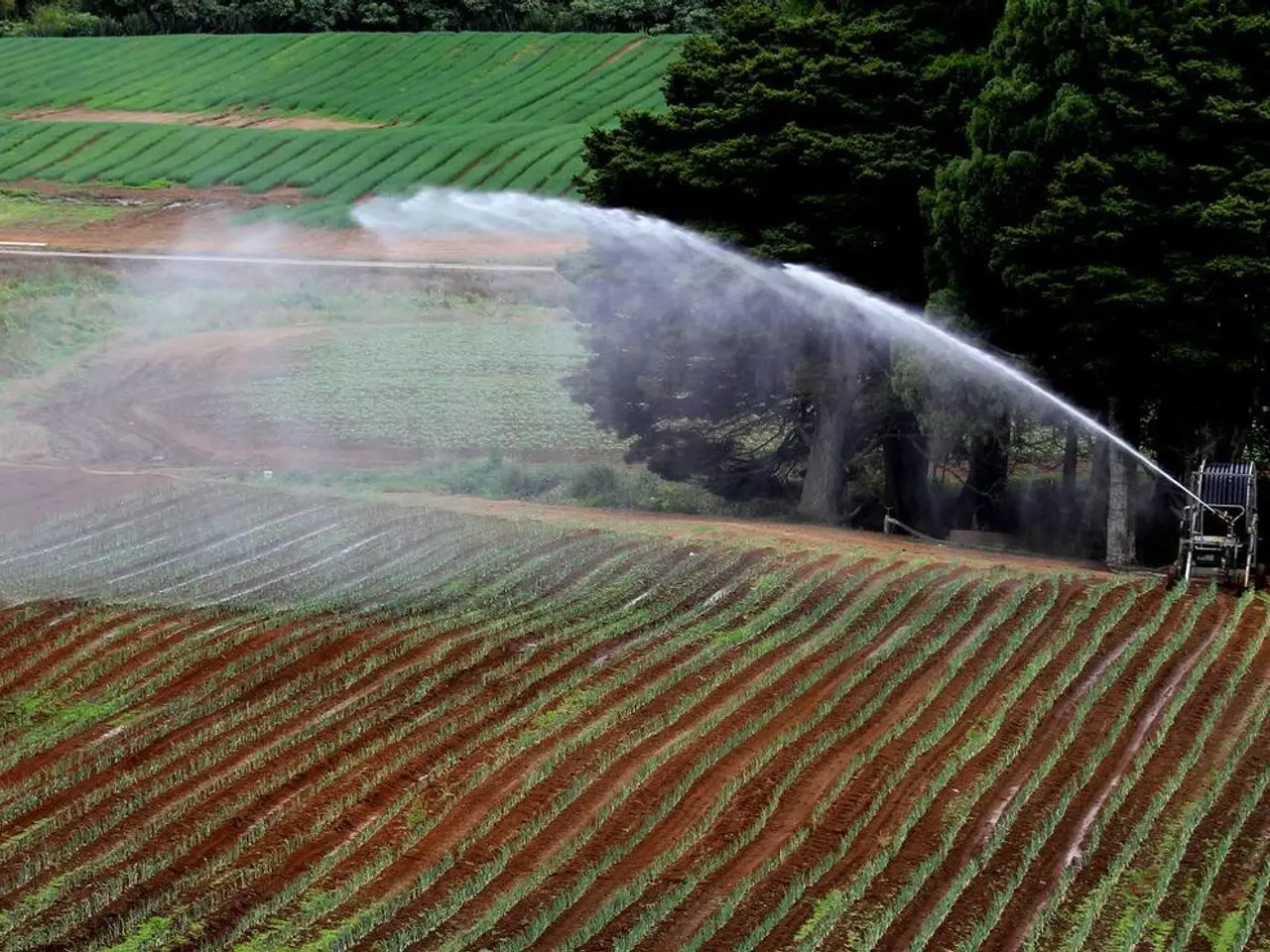AI Influence on Established Indian Sectors: Benefits and Obstacles
In a significant stride towards modernization, Artificial Intelligence (AI) is making a transformative impact on various sectors in India, particularly traditional industries like agriculture, manufacturing, and logistics.
AI-driven robotics and automation in warehouses are revolutionizing sorting, picking, and packing processes, leading to improved operational efficiency. This technological advancement is not just limited to the modern sector, as it is also streamlining operations in India's manufacturing sector by enabling predictive maintenance, enhancing quality control, and optimizing supply chains.
The agriculture sector is also benefiting from AI's capabilities. Machine learning algorithms are enabling crop yield prediction, helping with better planning in harvesting and distribution to minimize post-harvest losses. AI models are also offering more accurate weather forecasting, allowing farmers to adjust planting and harvesting schedules and reduce risks associated with climate variability. Precision farming tools, powered by AI, are being used for monitoring crop health, soil quality, and water usage, offering potential for automation and precision farming.
However, addressing the skills gap is a critical concern. With a substantial skills gap, particularly in semi-urban and rural regions where digital literacy and technical expertise are limited, the AI revolution creates a demand for a workforce skilled in data science, machine learning, and digital tools. Government initiatives and industry collaborations are essential to improve digital literacy and make AI tools more accessible to smaller farms.
Government incentives for small and medium enterprises (SMEs) could lower the barrier for AI adoption, helping smaller players afford setup costs. The Indian government promotes the digitization of agriculture, manufacturing, and logistics through initiatives like "Make in India," which fosters a positive business environment and encourages Industry 4.0 adoption including AI, IoT, and automation to improve efficiency and reduce costs. Collaborative R&D among government, industry, and institutes also supports advanced technology development, helping especially small businesses to access cost-effective AI technologies.
AI-driven supply chain optimization in logistics is improving demand forecasting, inventory management, and supplier coordination, allowing for more efficient meeting of market demands and avoidance of stock surpluses. AI-powered route optimization systems in India's logistics sector suggest optimal routes based on real-time data, reducing delivery times and fuel consumption.
Policies ensuring high-quality data access with robust privacy protections are crucial, especially for sectors like agriculture that heavily rely on data. Strong policy support and infrastructural investments are needed to enable AI-driven growth in traditional industries.
In conclusion, AI presents a transformative opportunity for India's traditional industries, offering tools to boost productivity, streamline operations, and meet future economic demands. As we navigate this digital transformation, it is essential to address the skills gap, foster a supportive policy environment, and make AI tools accessible to all sectors and sizes of businesses.
Read also:
- Packaging design of Comfort brand gets an update with a flexible, adaptable system.
- Expanding Bio-based Polypropylene Market to Showcase a Compound Annual Growth Rate (CAGR) of 26.5% till 2034
- victory for Central Java communities in landmark lawsuit against textile conglomerate over pollution issues
- Funding withdrawn from Eramet by Norway due to their mine jeopardizing Indonesian forests and a native tribe's land rights.








